Bookstores and libraries are closed.
In-person gatherings are either discouraged or banned (at least in states not run by sycophants).
The media and entertainment industries are in tailspin—either bracing for layoffs or overwhelmed by coronavirus coverage.
Which begs the question—what the hell are authors supposed to even do right now?
Book promotion has always been about as easy as fighting a kangaroo hopped up on meth. But right now the kangaroo has knives taped to its hands. And there's another kangaroo sneaking up behind you, and this one has a baseball bat...
Okay, this analogy is getting away from me. Point is, promoting a book is hard and we're entering a period where avenues are disappearing, and despite the need for entertainment during the endless days of the lockdown, people are strapped for cash. Buy a book, or food? That's not a hard choice.
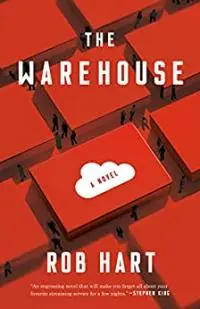 Knowing this, I went into overdrive. My latest novel, The Warehouse, came out in August, so it's been out in the world a bit. Still, I didn't want there to be a drop-off in finding new readers. And frankly, the book is a tiiiiiny bit relevant right now (it imagines a world where one online retailer cracks drone delivery, dominates the economy, and then uses that clout to do basically... anything it wants).
Knowing this, I went into overdrive. My latest novel, The Warehouse, came out in August, so it's been out in the world a bit. Still, I didn't want there to be a drop-off in finding new readers. And frankly, the book is a tiiiiiny bit relevant right now (it imagines a world where one online retailer cracks drone delivery, dominates the economy, and then uses that clout to do basically... anything it wants).
So I went looking for ways to team up with other authors, to promote each other's books (like this chat I did with Chuck Wendig, himself the author of another relevant book—Wanderers, which is about a pandemic). I dropped extra copies of my books in Little Free Libraries and at local businesses, hoping to give people something to read during the lockdown (and maybe earn some good word of mouth). I then translated that into media hits in my local newspaper and a local news program. I've been looking for interview and writing opportunities—related to my book or otherwise, just to get my name out there.
Has it been working? Maybe. The book is still selling, it seems at the same rate that it was before all this, I think? So if anything I managed to keep from falling off a cliff.
But it's also easy to feel a little kicked in the teeth right now. At the end of March I was supposed to leave for my French book tour—a longtime dream of mine, and it was a huge bummer to see that get canceled. I didn't have a ton of travel scheduled for this year, but I had some library festivals to go to, and planned to visit a convention or two. Those are all either canceled or in question (and probably ultimately will be canceled). I'm a little anxious about the opportunities I've lost.
Overall though I feel lucky. The Warehouse came out with enough time to establish a base. My next book is coming along, and doesn't even have a publication date. I figure it'll come out sometime next year? If books are still a thing and the world still exists? Who knows. Trump once suggested nuking a hurricane, I figure it's not long before he suggests nuking the virus.
I do feel terribly for the authors who have books coming out now. No signings, no appearances, no bookstores displaying you, no employees handselling you... those things matter. I feel like, anecdotally, there's been some good things happening online. Look at the wild success of Bookshop.org, which has raised $1 million for indie bookstores. There's been a constant drumbeat on Twitter, people reminding each other to shop local, to support artists. A lot of bookstores are doing mail order and curbside pickup.
But I figured this was a good time to check in with a couple of authors I know should have been on the tour circuit now, to see how they're holding up—and see what kind of wisdom they can impart, on how to promote a book in the age of pandemic.
![]() Alina Boyden, author of "Stealing Thunder"
Alina Boyden, author of "Stealing Thunder"
What’s the elevator pitch for your book and why would it make a good quarantine read?
Stealing Thunder is Pretty Woman in the Mughal Empire with dragons and a kickass trans girl protagonist. I don't think it would be wrong to label it an escapist fantasy, and who doesn't want to escape this situation right now?
How did you adapt, having a book come out during all this? What changed about your release?
Well, the big change is obviously not making any public appearances. I had to cancel Emerald City Comic Con, and several other cons that would have been upcoming. I think it's probably put a lot more pressure on my marketing and publicity teams to get the word out online. I think my biggest regret is not getting to go over to the local bookstore and see my book on the shelves. That was something I was really looking forward to.
Is there anything you found to be particularly effective in getting the word out?
How would I even know? When it's a debut, it's so hard to judge. But I think blogs, podcasts, and friends have been particularly helpful. Whether that casts as broad a net as the internet marketing campaign my publisher is doing, I couldn't say. I want to believe every little bit helps though.
Is there anything you found was not effective?
I did a little Facebook launch party Q&A with some other authors, and judging by the turnout, I think maybe that's just the wrong platform for something like that. But who knows really? We all know people with tens of thousands of social media followers which don't turn into book sales, and it's possible that everyone we interacted with pre-ordered our books and spread the word to friends, so it's hard to judge.
What, if anything, do you think might change about publishing after all this?
I think publishing has been on a trend towards e-books and e-commerce and e-advertising, and I don't see that trend changing at all. The question really is—what's the most effective way to make your book stand out in the crowd, if consumers aren't going to be seeing it sitting on a physical shelf. I don't have the answer to that, but fingers crossed my marketing team does.
Where should people buy your book, and why?
They can go to the PRH portal here, and choose their own favorite retailer. Everyone has their own reasons for shopping where they shop and it's not for me to judge.
Given the current state of the world, how are you holding up?
I'm fine. I worry for lots of other people, but I'm fortunate right now to be able to weather this storm in a way I never could have two or three years ago.
Buy Stealing Thunder from Bookshop or Amazon
![]() Myke Cole, author of "Sixteenth Watch" and "Hundred Wolves"
Myke Cole, author of "Sixteenth Watch" and "Hundred Wolves"
What’s the elevator pitch for your book and why would it make a good quarantine read?
I’ve had two books hit hard by the pandemic:
My novel Sixteenth Watch—a book about the future Coast Guard doing Search-and-Rescue on the moon. It’s perfect for a pandemic—it’s hopeful, uplifting, and hits the right notes about the importance of perseverance and commitment in the face of impossible odds.
My comic Hundred Wolves—a comic book series about Cossack raiders trying (unsuccessfully) to leave their violent past behind and raise their daughter in peace on the 17th century border between the Holy Roman and Ottoman Empires. Also great quarantine reading—it’s about the central role of love and family in seeing us through trying times.
How did you adapt, having a book come out during all this? What changed about your release?
For Sixteenth Watch, we were already in the cattle chute and there was nothing to be done other than take the hit. It published on March 10th, right as things were really starting to get bad. It kills me, because this undoubtedly severely impacted sales. Would the book have been a major success otherwise? There’s no way to know (though major successes in publishing are rare even when everything goes perfectly), but I will always have that doubt and that nagging sensation that my work didn’t get a fair chance to succeed in the marketplace.
For Hundred Wolves, the publisher has been really smart about delaying release to give the comic the best possible chance for success. We were slated to publish in April, then it got bumped to May, and I’ve just learned it’s been bumped again to the fall. I was terrified that the comic would be canceled and am so grateful that the publisher believes in it and remains committed to making sure it gets out there. Meanwhile, I’m doing what I can — circulating the Advanced Read Copy (ARC) of the first issue to get as many quotes from big name comics authors and reviewers as I can, and staying head down in the script to make sure that the future issues are so compelling that the publisher won’t even consider canceling. But yeah, I’m definitely nervous. Comics has been arguably hit harder than book publishing by this thing.
Is there anything you found to be particularly effective in getting the word out?
Twitter. It’s funny, social media was always important, but it’s taken on a new level of criticality now that browsing in brick and mortar stores is a thing of the past (and I hate to say it will likely remain a thing of the past for a very long time). The pandemic has driven more and more people online, which is bad for mental health, but artists seeking to promote their work can’t ignore it. I gravitate toward Twitter because that’s where my biggest audience is, but I am also working on building an Instagram following with some success.
Is there anything you found was not effective?
Facebook. The audience on that platform skews much older and much more conservative, and I feel like it’s largely out of step with the direction fiction is moving in. I don’t ignore it, of course, but I have limited time/energy for social media and I’d rather invest it in platforms that reach a wider and more progressive audience that is more likely to enjoy the kind of work I produce.
What, if anything, do you think might change about publishing after all this?
I wish I had encouraging words, but it looks really bad. Publishing ran on razor thin margins to begin with and this is devastating. Sure, people will spend on eBooks and mail order physical copies to keep themselves occupied during quarantine, but HUGE swaths of the global population are now unemployed and it’s only going to get worse. I don’t care how bored you are stuck at home, if you don’t have a job, you’re not buying books. What money you have goes to food and other essentials. I think we’ll see a massive rise in ePiracy and people downloading free books from self-published authors. I think we’ll see publishing contract drastically and possibly go under.
The hope I have is that publishing survived the Great Depression, 9/11, and the Spanish Flu. It will surely survive this is some form, but I do believe it’s going to get much, much, much harder for any author (established or trying to break in) to sell books in the years to come.
Where should people buy your book, and why?
I am grateful that readers buy my books at all. I know there’s a lot of angst directed toward Amazon, but I only ask that readers choose the outlet that’s most convenient for them. On my website, I always provide links to Amazon, B&N, Powell’s and Indiebound for each of my books. Readers who are concerned about their local bookstore can order through them, and I’m always a fan of that.
Given the current state of the world, how are you holding up?
I won’t lie, man. I’m low. I’m frustrated and angry that this crisis is SO much worse here than it needs to be entirely because our current administration is a fascist death-cult bent on propping up the ego of one of the worst people in American history, and 40% of the country is just great with that. I’m especially vulnerable because the main way I countered anxiety and depression was generating hope by working on projects and thinking “maybe this book will be the one that breaks out” or “maybe this reel will land me my next TV show.” And now . . . who knows? The goal posts for success in the arts just moved waaaaay down the field, and it’s so damn frustrating.
BUT.
This is how I *feel*. It is NOT how I *act*.
I understand that giving into hopelessness is the end of everything. So even though I feel like hell, I act like everything is fine. The enemy is social media and video games. I fight against the temptation to spend too much time on those things and focus on what I can control: Exercise, writing, reading (focused, detailed reading), volunteering (I do supply runs for infected families who can’t afford delivery and can’t break quarantine), and video chats with friends and family.
There’s the old saying “free your mind and your ass will follow.” I think the opposite is true right now. I am freeing my ass in the hopes my mind will follow.
Buy Sixteenth Watch from Bookshop or Amazon
![]() Jennifer Hillier, author of "Little Secrets"
Jennifer Hillier, author of "Little Secrets"
What’s the elevator pitch for your book and why would it make a good quarantine read?
Little Secrets is a psychological thriller about a woman who, a year after her four-year-old son is kidnapped, discovers her husband is having an affair with a much younger woman. It's a deep dive into the main character's feelings of helplessness and rage, so the story is pretty dark, but it's a different kind of dark than what we're all living through right now. I think this would make a good quarantine read because it's been cathartic for me to read stories that allow me to safely channel my own feelings of helplessness and rage somewhere other than my own reality.
How did you adapt, having a book come out during all this? What changed about your release?
I don't typically do a lot of in-person events, but I've already done more events for this new book than I did for my last one. I've just been doing them virtually now, which actually suits me better. I'm more comfortable looking at one face rather than a sea of faces. Otherwise, nothing much had to be changed. Thankfully the publisher had already put together a strong social media campaign for the book, so we continued to run with that as planned. I have had to up my Instagram and Facebook game, though, and learn how to use Stories and do Lives.
Is there anything you found was not effective?
Personal giveaways. They're not cost-effective for me here in Canada, even in the best of times. It costs me $17-$20 to mail out a book, on top of the cost of the book itself. But during a pandemic? Shipping is very slow right now, and it's not much fun to go to the post office to ship a book to someone who might be nervous about receiving packages. That being said, publisher-sponsored giveaways are great (especially through Goodreads), and I'm happy to partner up for group giveaways, which generate more attention than I could all by myself, anyway.
Where should people buy your book, and why?
Shop local if you can! You can do it online.
Given the current state of the world, how are you holding up?
I hate to admit it, and it took a few weeks, but I think I'm starting to settle into this new normal. The hardest part is homeschooling a five-year-old who cries whenever I use a "teacher voice" to explain things to him, because it "hurts his feelings." But we're all okay here, all healthy, and that's what matters. I still feel the need to apologize whenever I post anything about my book – because I know that folks have much bigger things to worry about – but it's still my job, and I'm lucky to have it.
Buy Little Secrets from Bookshop or Amazon
![]() Michael J. Seidlinger, author of "Dreams of Being"
Michael J. Seidlinger, author of "Dreams of Being"
What’s the elevator pitch for your book and why would it make a good quarantine read?
Cameron Pierce, a friend of mine, posted a couple years back on Facebook a bunch of joke writing prompts, including one that went something like, “Jiro Dreams of Sushi where Jiro does nothing but dream of sushi, having failed to become a sushi chef.” Since the documentary is, to this day, one of my all-time favorite films, I jumped on the prompt. The end result is this book.
How did you adapt, having a book come out during all this? What changed about your release?
It was a lot of readjusting our expectations, trying to think outside of the box a little with regards to promotion, and really just leaning in hard on my readers and the community surrounding us. Overall, we understood that tons of people wouldn’t be able to afford buying a book even if they wanted to, so we thought it might be cool to add a free eBook to every purchase. Likewise, for the sake of collectability and being able to offer something special, we have a limited edition hardcover of the book, capped at 30 copies. Due to demand and also the strange times, we’ve extended that cap, printing another dozen or so. Now more than ever, an indie press is at a disadvantage. Writers, in general, are at a disadvantage because much of what they were able to utilize—be it local community, events/touring, and social media – are no longer available to them or have been overrun with pretty much everything involving the pandemic. You know, most of all, the biggest effect has been existential. It feels weird, I almost feel guilty, thinking about putting a book out right now. With the future in question, and with so many people getting sick, losing their jobs, and more, being concerned about “visibility” on social media because everything one does is dampened by the discourse surrounding our modern time, it’s emotionally exhausting to put out a book when you know just how, well, trivial it can be when faced with life and death. But so many of us forge ahead and we’ve had to manage our expectations as well as our emotions. It was never easy to publish a book to begin with. Now it’s 100 times worse.
Is there anything you found to be particularly effective in getting the word out?
I thought I had a good answer for this one, but after thinking it over a bit, turns out, I don’t. The usual channels are still there but everything is far more condensed, or “cloudy.” Things are fuzzy and blurry and though there are tons of people always being supportive by cheering you on, the actual book sales almost never reflect the noise, the hype, etc. People say they are buying your book and don’t. One thing that’s been super effective is an author group that began back in early March after author Mary South posted about publishing in the time of the pandemic. It has grown to be this amazing and proactive group of authors watching out for each other, spreading the word for each other’s books. They aren’t doing things in hopes of cashing in favors later. Everyone that’s active in the group are treating it like a team. And it’s fucking great. I don’t think I’ve ever seen something like it, at least not at the size it has become (nearing a hundred writers in the group). They’ve grown to expand press outreach and an Instagram account called @lockdown_literature. I was lucky enough to be able to design the logo.
Is there anything you found was not effective?
Most everything, haha. I mean you still need to do the interviews, push for reviews, etc. You need to tweet and post about your work. The infrastructure needs to be there, but what used to be more consistently effective has simply… vanished. The illusion is there, but the end result— people buying books—that’s never been more difficult. But clearly people are buying books. Bookshop has raised over a million dollars for indie bookstores. It’s proof that people buy them; it’s just further proof that we have too many books out there. Too crowded of a marketplace for the demand. When visibility is such a slippery slope based entirely on the money behind the marketing campaign, it’s even tougher.
What, if anything, do you think might change about publishing after all this?
If literature was a niche pre-pandemic, it’s going to be even more of one now. It could be a good thing though. Some publishers won’t make it. Even the bigger ones. Perhaps this could be a bit of a reawakening for some publishers. For every press like Coffee House that has always advocated the difference between literature and trade publishing, there are plenty that blurred the two. Now’s the time to finally draw that line. Literature will find its way. I’m curious to see who might take more risks.
Where should people buy your book, and why?
Well, don’t buy it from Amazon. Seriously. They are currently artificially listing it as unavailable even though there’s stock at the distributor. Buy it direct from Maudlin House, or at Bookshop.
Given the current state of the world, how are you holding up?
Ups and downs. Today is a good day, so far; some days, I’m barely human. Depression is always on the table, and why shouldn’t it be? I’m having trouble seeing the world past June. I don’t know what’s going to happen. Never more than now, I’ve been living moment to moment. It’s like when I was homeless, you can’t mentally afford to think so far ahead, so you live in the moment. The hour. The need. There’s nothing else. It’s survival. You don’t have anything else to look forward to except the next meal, the next bout of rest.
Buy Dreams of Being from Bookshop
![]() Gabino Iglesias, editor of "Both Sides"
Gabino Iglesias, editor of "Both Sides"
What’s the elevator pitch for your book and why would it make a good quarantine read?
Both Sides is an anthology of short stories dealing with borders, change, migration, and the inescapable problems of Otherness. It's a superb quarantine read because the US-Mexico border is an issue that demands to be explored and rehumanized. Also, a pandemic makes you realize how we all get screwed together, so we truly are all just sacks of flesh sharing a rotating rock covered in water.
How did you adapt, having a book come out during all this? What changed about your release?
I haven't adapted. I think none of us have. We just push forward and keep hustling. A book release is promotion, readings, events, giveaways, talking to indie bookstores. You know how it goes. There's none of that going on now. There's a book out there and a few of us telling people about it. Not even many interviews. People are scared. They are concerned. Unemployment is through the roof. Hard to tell folks to but a shiny new hardback when they're having nightmares about paying their rent and putting food on the table. I've face eviction twice, so I see it, and I feel for all of them.
Is there anything you found to be particularly effective in getting the word out? Is there anything you found was not effective?
I love Twitter, but that's it. We have to compete with everything else going on and you can bet whatever stupid thing Trump says next will get all the attention.
What, if anything, do you think might change about publishing after all this?
I think many writers are learning not to depend on Amazon so much. It'll be hard for us indies because some indie bookstores won't carry our work, but at least people are talking about it. We're coming together and things like BookShop.org are gaining traction and showing everyone that there are other ways, other channels.
Where should people buy your book, and why?
I want the stories these amazing writers wrote to be read. They are heartbreaking, angry, beautiful narratives. They can support BookShop or go to Amazon. If they have a local indie they love, please order it from there. Or get the ebook and you can start reading immediately. Whatever works for them. I just want them to read these stories.
Given the current state of the world, how are you holding up?
I'm doing well. I'm working from home. Teaching. I have time to read more than usual, which is great. I'm trying to finish the next novel. I have no idea what things will look like when this is all over, but I want to come out of it swinging. I want to go places and read my work. I want to take one more step toward the final goal of not having to juggle three jobs to stay afloat and then write whenever I can steal fifteen minutes away from the rest of my responsibilities. How are you holding up?
Buy Both Sides from Bookshop or Amazon
![]() Andrea Bartz, author of "The Herd"
Andrea Bartz, author of "The Herd"
What’s the elevator pitch for your book and why would it make a good quarantine read?
The Herd is a thriller about an exclusive, all-female coworking space whose glamorous founder disappears the night of an important company announcement. It's a fun quarantine read for anyone who wants to get lost in another world; WSJ Magazine calls it "a wonderfully gossipy thriller about feminism, friendship and foul play" and Booklist calls it "guaranteed armchair escapism." Plus, it's all about office drama, coworker gossip, and where the glitzy set goes to see and be seen in New York City—a period piece from, you know, late 2019!
How did you adapt, having a book come out during all this? What changed about your release?
Pretty much everything changed! My publication date was March 24, and March 22 is when all of New York's bookstores shut down, with most of the nation following suit. I'd scheduled several in-person events in NYC as well as a six-city book tour, and everything was canceled. So, from my studio apartment in Brooklyn, I pivoted to virtual events; my release party with Books Are Magic was streamed over Zoom, and I partnered with online book clubs, bookstagrammers, publications, fellow thriller authors, and bookish Facebook groups to stream live AMAs and moderated discussions. It sucks to not be able to meet with readers or booksellers or see the book on shelves, but it's also been cool to connect with people all over the globe.
Is there anything you found to be particularly effective in getting the word out?
It's hard to know what moves the needle in terms of sales, but I seemed to get the best engagement from groups that were already devoted to reading—for example, far more people tuned in to my Instagram Live with @thestackspod (the Instagram account for The Stacks, a weekly book podcast) than to my Live with an influencer friend who has twice as many followers. I'm also very glad I tapped into A Mighty Blaze because, even though it's a smallish group, it's populated with fellow authors who were super helpful in spreading the word.
Also, this was true before the pandemic as well, but I wish every author in the world would make one clear, new post on publication day that's like, THIS IS MY BOOK IT'S ABOUT X PLEASE BUY IT AT Y, and then pin it to the top of their Twitter/Facebook/etc. People will retweet or share it! Sometimes I intend to post about a friend's book and I can't find an easily sharable post and have to make one from scratch and I just wish they'd make it easy. My publication-day tweet got 147 retweets and more than 165K impressions, and it cost me $0.
Is there anything you found was not effective?
As is always the case, doing Q&A's for niche newsletters or book blogs you haven't heard of probably doesn't lead to massive sales or exposure. But I've been saying yes to most things because, hey, I'm home, and what else am I doing?
What, if anything, do you think might change about publishing after all this?
What a huge question! I imagine marketing and publicity plans will shift to emphasize ebooks and audiobooks, at least for the near future. I hope that bookstores and book influencers continue hosting virtual events, since they let fans from all over the world join in. And I hope indie bookstores will become our default way to purchase physical books, with Bookshop.org surging and Amazon (understandably) prioritizing other categories.
Where should people buy your book, and why?
Support your local bookstore if you can! You can order directly from them, or via Bookshop.org.
Given the current state of the world, how are you holding up?
I'm doing okay! Some days I feel close to normal and others I feel anxious or angry or scared (or all three). I just celebrated my birthday in isolation, which was strange, but even virtually my friends made me feel loved. I can't wait to start hanging out with people, though; I'm an extrovert in isolation and I literally dream of big parties and crowded concerts and strangers' pulsing energy. I won't take it for granted again!
Buy The Herd from Bookshop or Amazon
Oh, and, look, just because I'm shameless... you can find The Warehouse at Bookshop, where it was dubbed one of the ten best reviewed books of 2019. Just sayin.

About the author
Rob Hart is the class director at LitReactor. His latest novel, The Paradox Hotel, will be released on Feb. 22 by Ballantine. He also wrote The Warehouse, which sold in more than 20 languages and was optioned for film by Ron Howard. Other titles include the Ash McKenna crime series, the short story collection Take-Out, and Scott Free with James Patterson. Find more at www.robwhart.com.
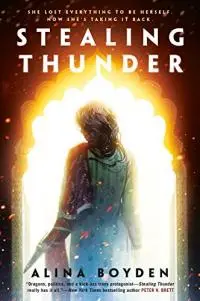 Alina Boyden, author of "Stealing Thunder"
Alina Boyden, author of "Stealing Thunder"
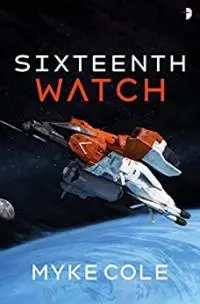 Myke Cole, author of "Sixteenth Watch" and "Hundred Wolves"
Myke Cole, author of "Sixteenth Watch" and "Hundred Wolves"
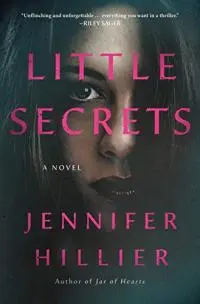 Jennifer Hillier, author of "Little Secrets"
Jennifer Hillier, author of "Little Secrets"
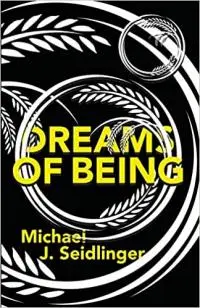 Michael J. Seidlinger, author of "Dreams of Being"
Michael J. Seidlinger, author of "Dreams of Being"
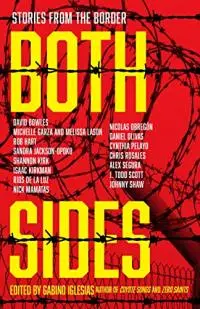 Gabino Iglesias, editor of "Both Sides"
Gabino Iglesias, editor of "Both Sides"
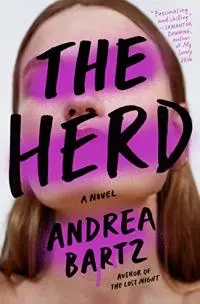 Andrea Bartz, author of "The Herd"
Andrea Bartz, author of "The Herd"








